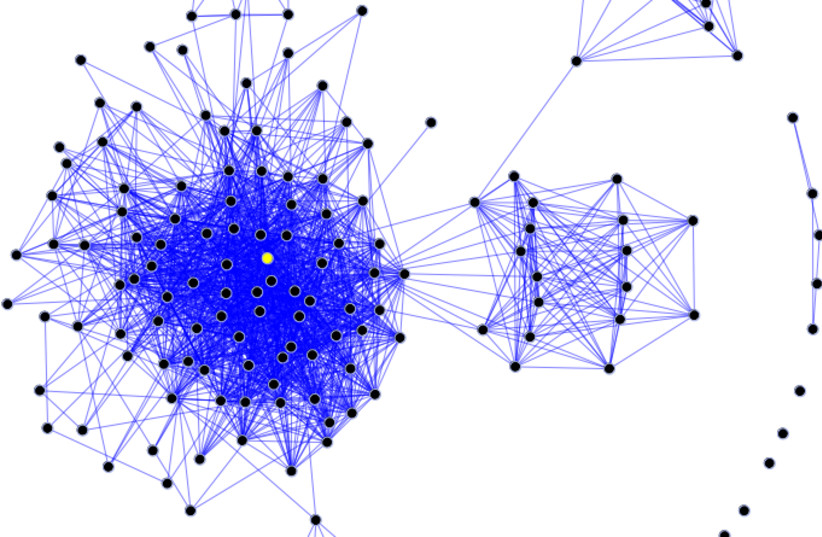With the omnipresent role in society of social media and the internet, it can be easy to isolate oneself from opinions that challenge one's preconceived worldview. So how do you know if you're stuck in an echo chamber?
Researchers at the University of California, Santa Cruz found that subtle components of style and tone in online speech are associated with hyperpartisanship, or strong political bias, according to Allison Soergel of the university's news center.
The researchers, including Jean E. Fox Tree, senior author of the study and a professor of psychology at UCSC, and Allison Nguyen, lead author and Cognitive Psychology Ph.D. candidate, published the results of their study, entitled "Look, Dude: How hyperpartisan and non-hyperpartisan speech differ in the online commentary" in the peer-reviewed journal Discourse & Society on Monday.
"Online echo chambers are virtual spaces that gather like-minded individuals," Soergel explained, adding that people have a higher likelihood of believing information that they find in these environments because it confirms their beliefs. She added that these spaces have the perfect conditions for hyperpartisanship.
Hyperpartisan messaging is highly subjective and often includes willful disinformation, Soergel added.

Factors linked to hyperpartisan speech
“Knowing what to look for and which spaces to be wary in is important in how we can prevent the spread of disinformation.”
Allison Nguyen, lead author and Cognitive Psychology Ph.D. candidate, UCSC
Some factors that were linked to hyperpartisan speech included the use of swear words, discourse markers like "oh," "well" and "you know," exclamation points and local pronouns such as "I" and "you."
According to the study, these indicate that people in hyperpartisan online communities exploit seemingly benign elements of language to appeal to familiarity with readers.
“Hyperpartisan communication is related to what we call ‘alternative reality communication,’” Fox Tree said.
“Examples include things like urban legends, disinformation, fake news, and any type of information that is overblown in various ways.
"It's important to understand why this type of information gains so much traction, and one theory is there’s a shared style of communication that’s part of that.”
The researchers sought to determine if language markers of spontaneous communication could accurately confirm that a particular environment is a hyperpartisan echo chamber, according to Soergel.
To find evidence of this type of messaging, they analyzed over 47,000 Reddit comments on eight political subreddits, four of which claimed to be non-partisan and four that openly catered to radical political views.
The researchers found that certain components of spontaneous communication appeal to emotion, like profanity and exclamation marks, as well as the use of discourse markers and prepositions to control aspects of the conversation and make it seem like it is happening in person.
In contrast, the study found that non-hyperpartisan subreddits used third-person pronouns, periods, and quotations to project neutrality while emphasizing accuracy and empiricism, Soergel added.
“A lot of people get their news from spaces on the internet, and maybe this research can help people learn how to spot whether they're in some sort of echo chamber or bubble online,” said Nguyen.
“Knowing what to look for and which spaces to be wary in is important in how we can prevent the spread of disinformation.”
